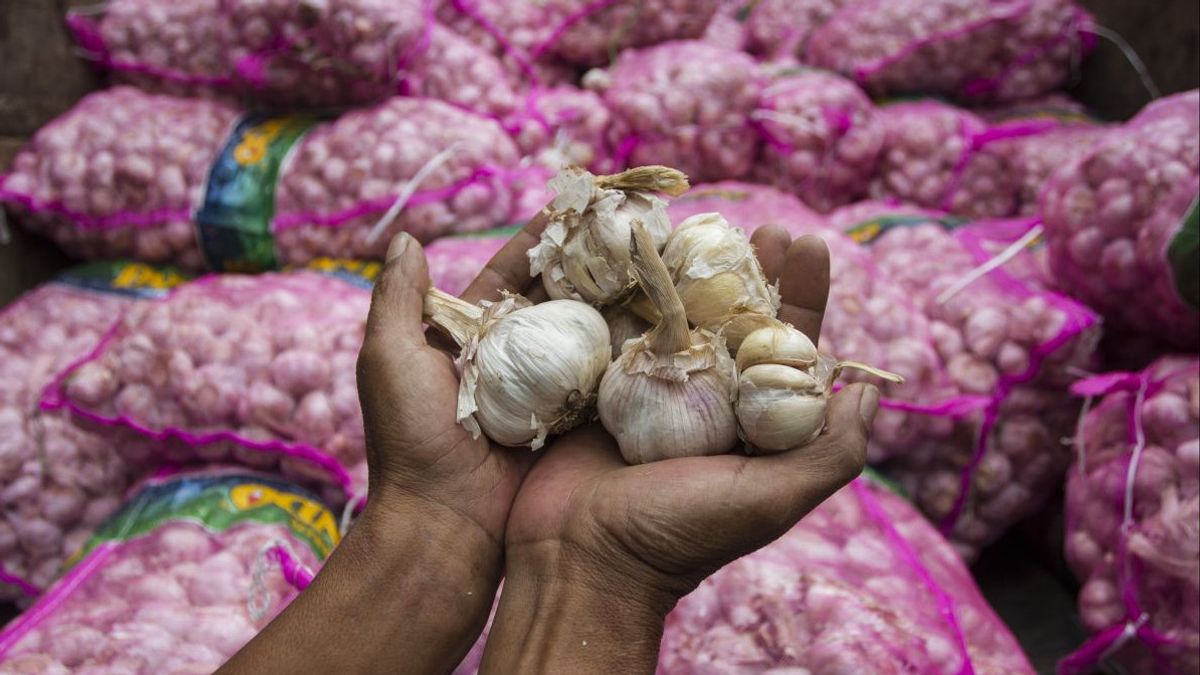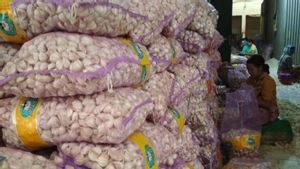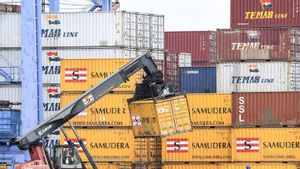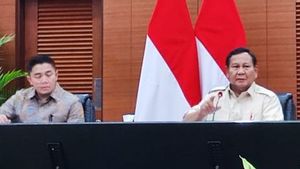The Indonesian Ombudsman found several problems with maladministration in the provision of recommendations for imports of horticultural products (RIPH) of garlic by the Ministry of Agriculture (Kementan).
RI Ombudsman member Yeka Hendra Fatika said this finding was obtained after his party conducted an examination of 12 parties, including the Ministry of Agriculture, National Food Agency, National Single Windows Institute, Indonesian Quarantine Agency, and the Ministry of Trade (Kemendag).
Based on the findings, Teka said, many garlic importers still have difficulty getting import approval. This is due to the issuance of the RIPH from the Directorate General of Horticulture of the Ministry of Agriculture which is problematic.
Yeka revealed that many importers could not enter the online RIPH system. In addition, there were also applications submitted by importers that were rejected and many were still not verified by the Ministry of Agriculture.
In fact, in accordance with the Regulation of the Minister of Agriculture (Permentan) Number 39 of 2019, the process of validation and verification of RIPH technical documents should be completed within 5 working days.
However, he said that some other applications actually had a relatively fast period of time or were still within the specified period.
"This causes protracted delays, discrimination, procedural irregularities and competence in the implementation of the RIPH Garlic service," Yeka said in a written statement, quoted on Saturday, March 23.
The next finding is that the Ombudsman finds that many importers do not meet the mandatory requirements for planting garlic.
Mandatory to plant garlic is a government policy that requires garlic importers to plant and produce garlic in the country. The goal is to increase national garlic production.
This policy is regulated in the Regulation of the Minister of Agriculture (Permentan) Number 38 of 2017 concerning RIPH.
According to Yeka, garlic companies are increasing every year. However, of the 214 companies that import garlic in 2023, only 44 companies are carrying out mandatory planting of garlic.
SEE ALSO:
"The reported and staff have failed to supervise the implementation of the mandatory policy of planting garlic. The current mandatory policy of planting garlic has not been able to help increase the growth area and production of domestic garlic," he said.
This policy, Yeka continued, needs to be evaluated because many importers take advantage of the regulatory loopholes to avoid this obligation.
This mandatory planting policy is mandatory for companies that have already imported, while those who have never been imported do not have to carry out mandatory planting.
"The number of old companies that carry out planting is getting less and less. This means that this year they can be imported, but they do not have to grow. Just form a new company, then apply for imports again. So, more and more garlic companies every year," he said.
The English, Chinese, Japanese, Arabic, and French versions are automatically generated by the AI. So there may still be inaccuracies in translating, please always see Indonesian as our main language. (system supported by DigitalSiber.id)
















